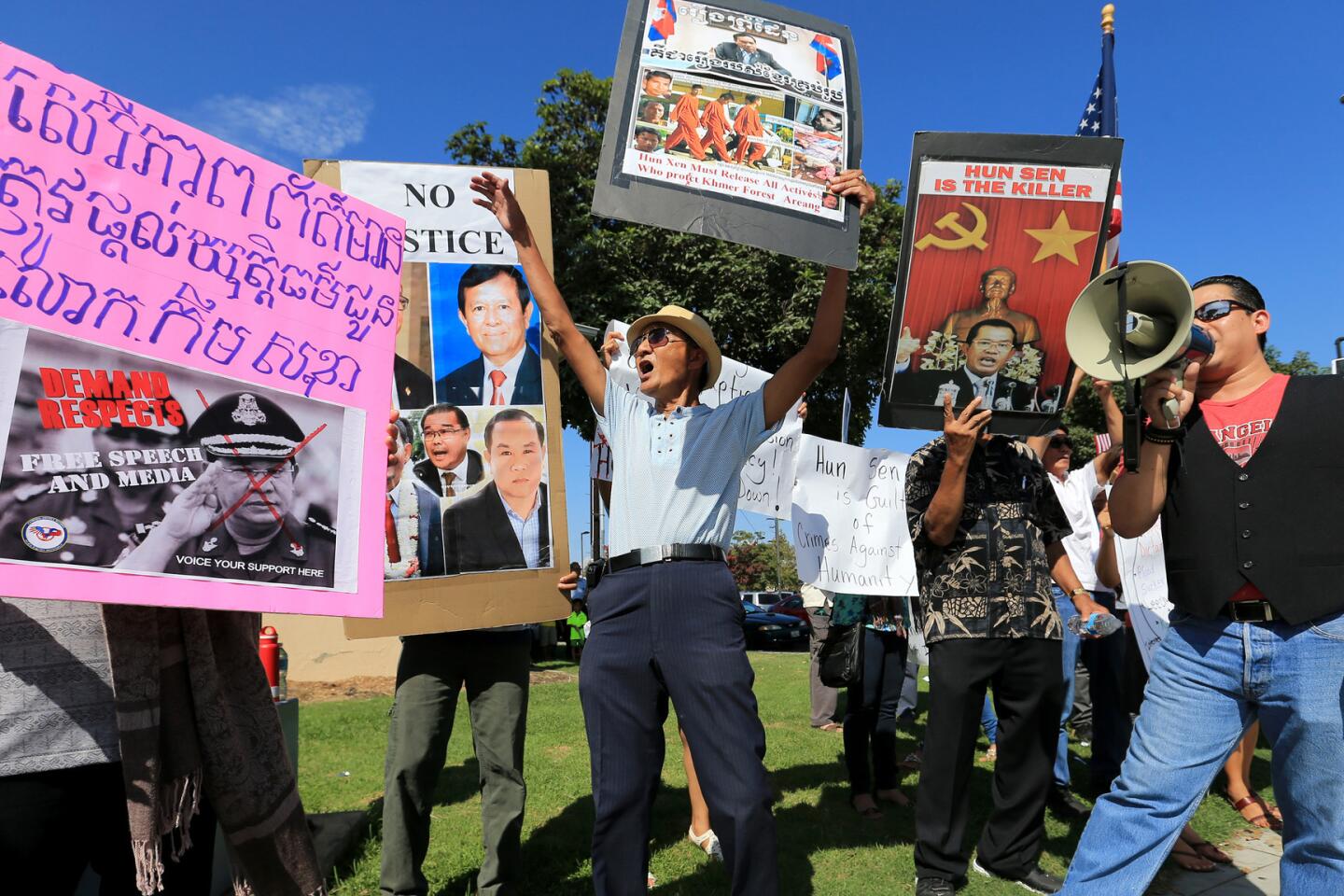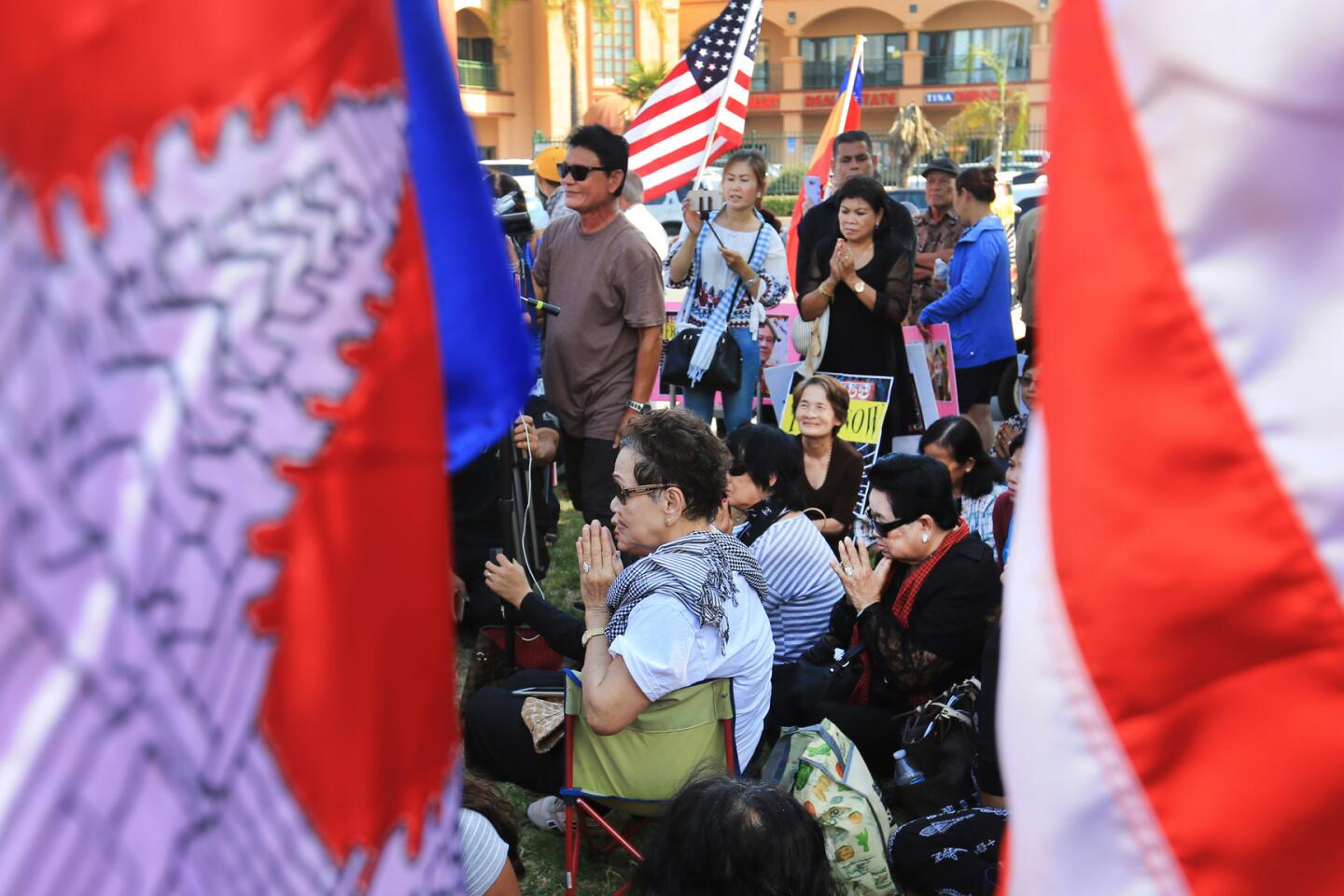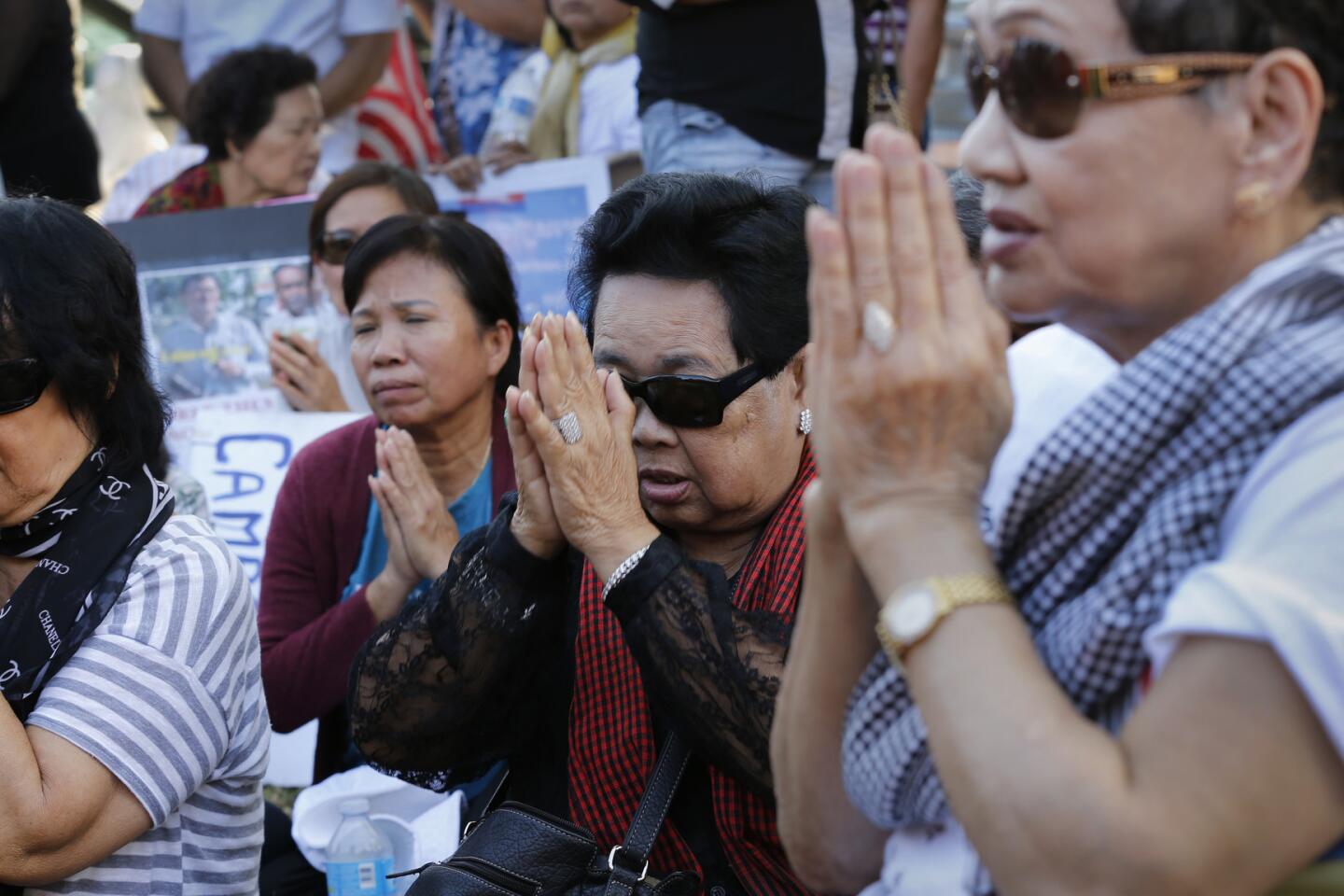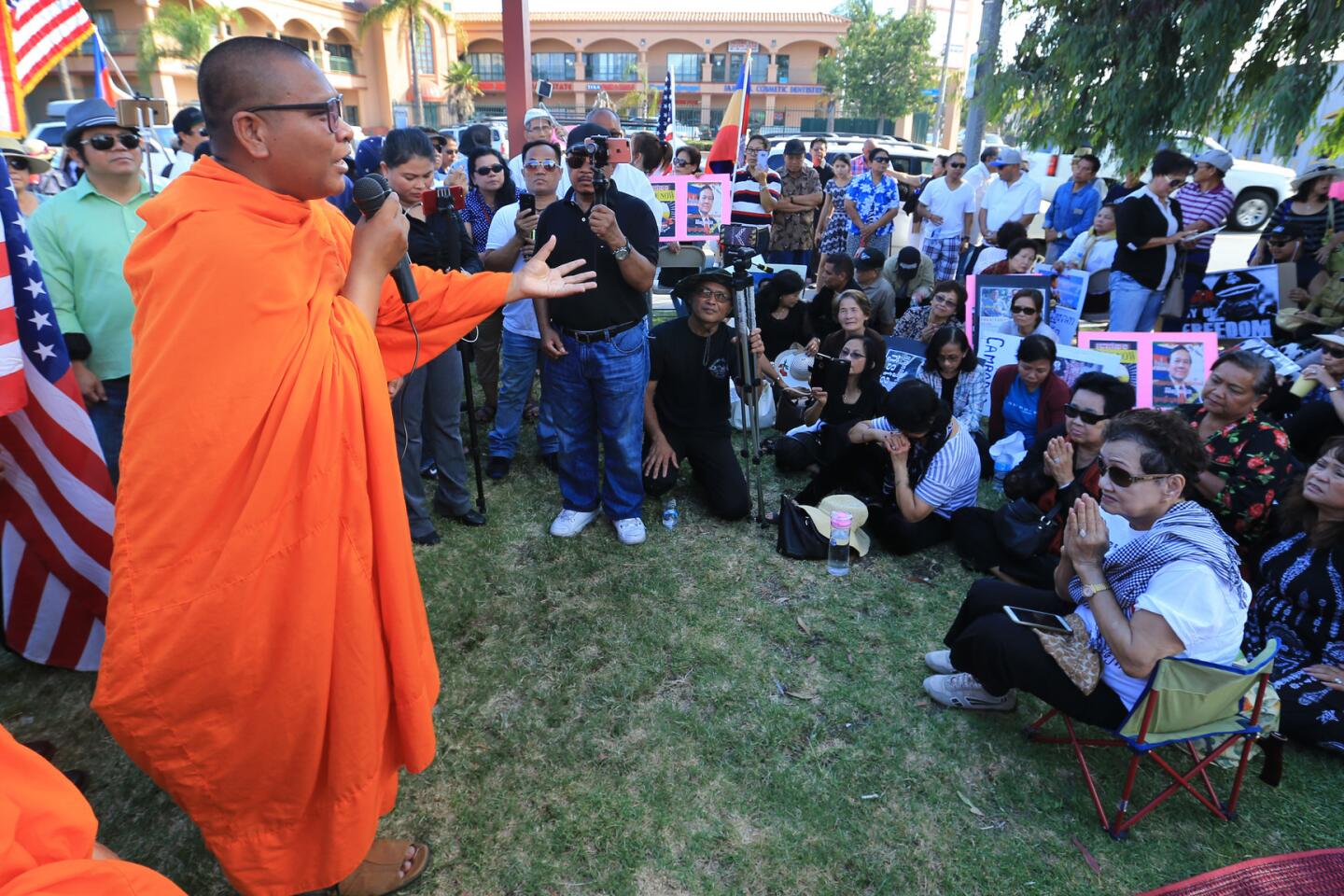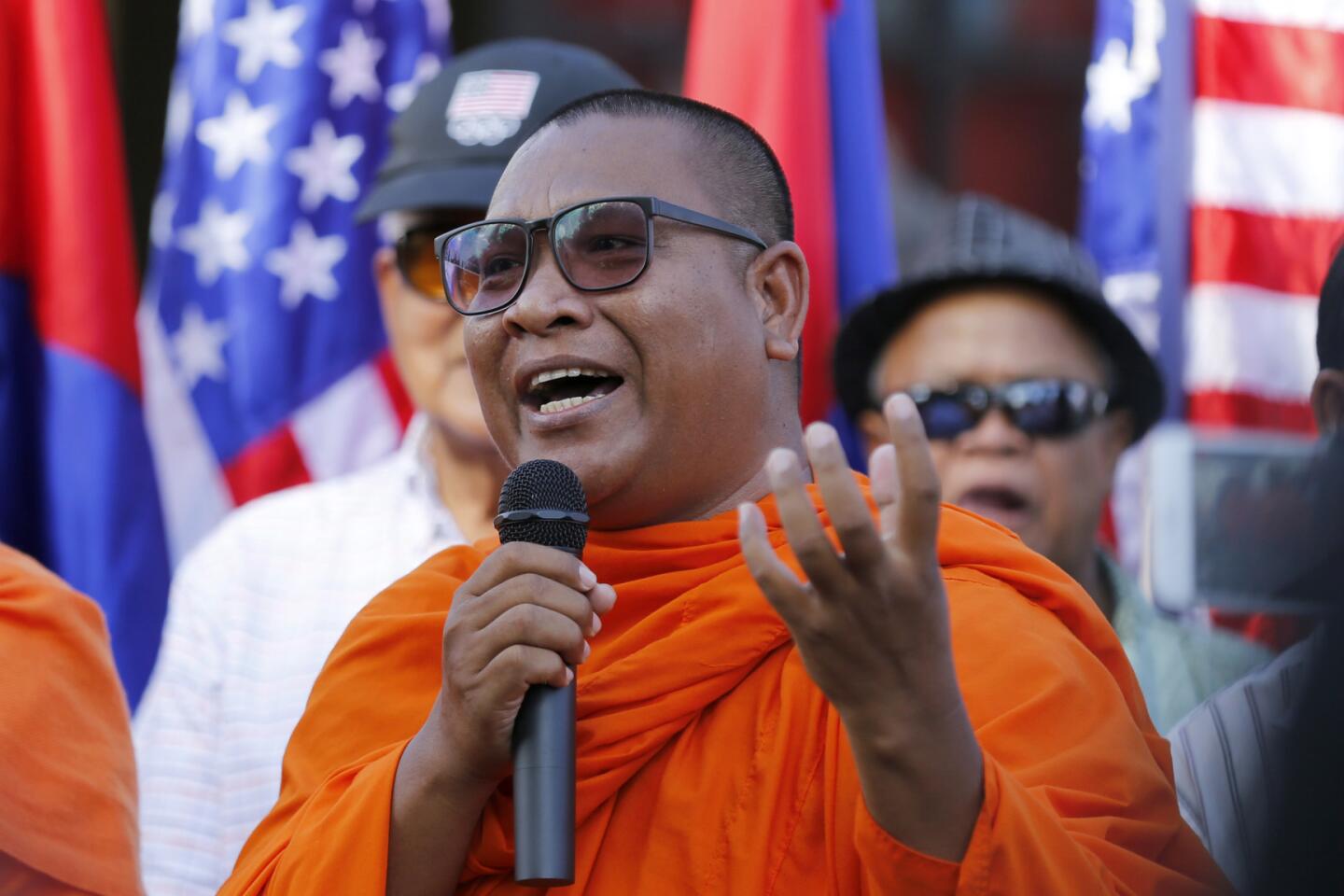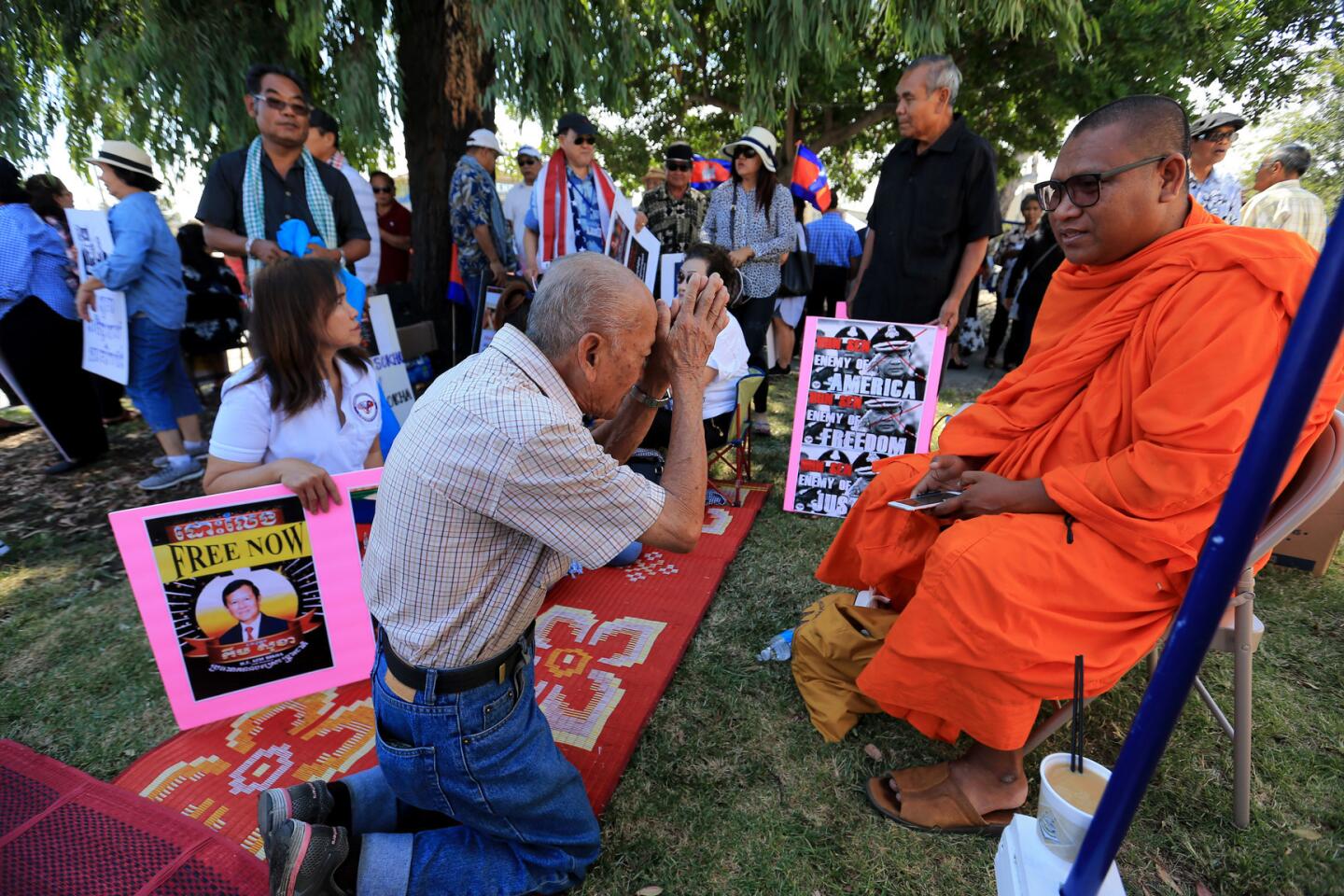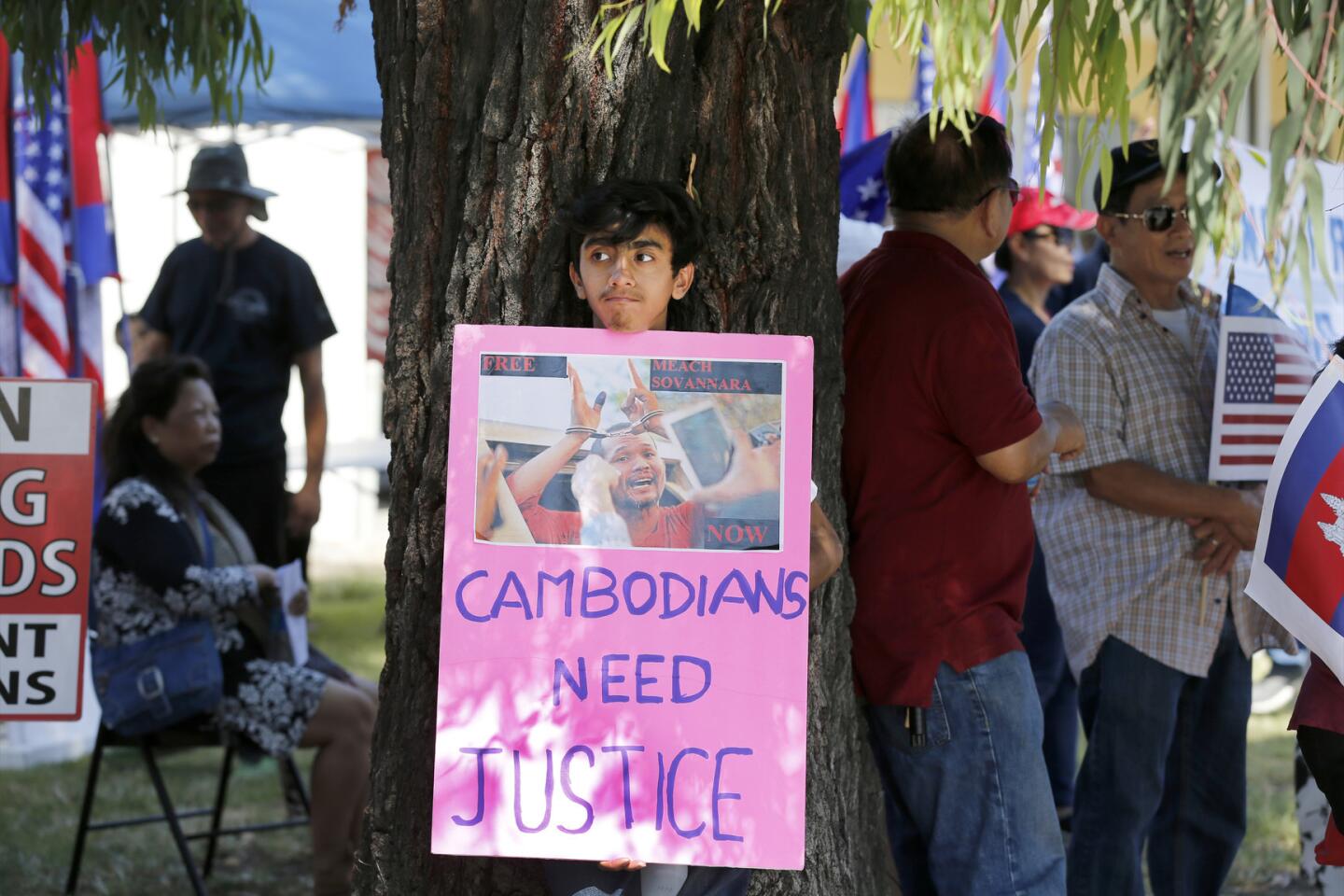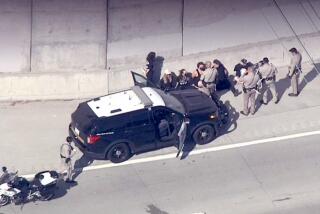Cambodian Americans protest in Long Beach over the jailing of a political leader in their homeland
- Share via
More than 300 Cambodian Americans rallied at a Long Beach park Sunday to demand the release of recently jailed Cambodian political leader Kem Sokha.
They chanted slogans, brandished signs, shouted condemnations through megaphones and sang old Cambodian folk songs from the 1950s.
The target of their vitriol: Cambodian Prime Minister Hun Sen, who has ruled the country for 31 years.
“Hun Sen kills people! Hun Sen must go!” they chanted.
Sokha was arrested by Sen last week and charged with treason. The charges came amid a countrywide crackdown on speech freedoms that closed several major radio stations and shuttered the English-language Cambodia Daily. The moves have been denounced by human rights experts, and officials in the U.S., United Nations and the European Union.
“Kem Sokha has a long, distinguished, and internationally recognized commitment to human rights and peaceful democracy,” said State Department spokesperson Heather Nauert in a statement, adding that his arrest raised serious questions about the legitimacy of Cambodia’s elections next year.
Sunday’s protest, organized in part by the Cambodian American Alliance, was part of multiple protests in Cambodian diasporas around the world, said one of the organizers, Boone Ran, 45.
Though the protesters were decrying human rights violations an ocean away in Cambodia, their cause resonated loudly in Long Beach, where the nation’s largest Cambodian diaspora resides. Dozens of motorists on Anaheim Street honked their horns in support and thrust clenched fists out their windows.
Ran said it’s important that Cambodians outside the country speak out. One of his friends in Cambodia has been in jail for the last 25 years because he once gave a speech about human rights, Ran said.
“We are calling on the UN, the U.S., President Trump, the International Criminal Court to investigate,” Ran said.
For many Cambodians in Long Beach, Sen’s moves stirred deeply painful memories. They say he is connected to the regime responsible for the state-sponsored genocide that killed nearly 2 million people during the chaotic years after the Vietnam War. His continued control of Cambodia, some protesters said, shows that the so-called Killing Fields haven’t ended.
“All the people in power today are still connected to the past. It’s more of the same. It’s the same thing over and over and over again. That’s why it’s so painful for us,” said Chad Ung, 37.
The memories are so raw that a few years ago, when Sen’s eldest son, Hun Manet, was invited to the annual Cambodia Town parade, angry protests forced Manet to bow out. Some local Cambodian residents even swore to boycott the groups and businesses that greeted or hosted Manet during his visit.
Cambodia’s politics are deeply personal to many who were forced to flee, Ung said. The vast majority of those protesting lost family members during the Killing Fields, and still more have relatives struggling to survive under Sen’s regime. They contend that Sen is stealing people’s land, attacking press freedoms and punishing people for their political beliefs.
Ung isn’t part of any political group, but he saw a Facebook post about the protest and decided to join it.
“Cambodians, in general, we do not speak out much compared to other Americans,” Ung said. “We have all of this here, but at home we are still suffering.”
Another protest has been planned for Saturday in downtown Long Beach. Protesting in Long Beach shows relatives in Cambodia and political leaders around the world that they still care, said William Thach, a refugee who came to the U.S. in the 1980s.
“We came here running from the Killing Fields. Today we still have a problem. We need the world to help Cambodia,” Thach said. “It’s like the Killing Fields never went away.”
Twitter: @frankshyong
More to Read
Sign up for Essential California
The most important California stories and recommendations in your inbox every morning.
You may occasionally receive promotional content from the Los Angeles Times.
